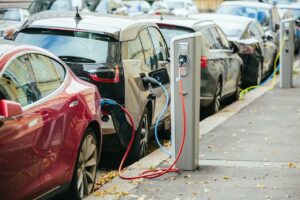Ghana Ministry of Transport launches National Electric Vehicle Policy
 To reduce the effects of climate change and commit to environmental sustainability, economic growth, and global climate goals, President Nana Addo Dankwa Akufo-Addo, has on behalf of the Ministry of Transport launched the National Electric Vehicle (EV) Policy.
To reduce the effects of climate change and commit to environmental sustainability, economic growth, and global climate goals, President Nana Addo Dankwa Akufo-Addo, has on behalf of the Ministry of Transport launched the National Electric Vehicle (EV) Policy.
In a news brief copied to the Ghana News Agency in Accra, said the launch was to transition the country to a more sustainable energy sources since the continuous use of fossil fuels was identified as a major contributor to environmental challenges, impacting the economy which could jeopardize the well-being of future generations.
It said Electric Vehicles (EVs) had emerged as a pivotal solution in the battle against transportation-related emissions and climate change.
In the statement, Mr Kwaku Ofori Asiamah, Minister for Transport said the economic viability of EVs had spurred investments in the electric mobility value chain, with the global EV inventory projected to surge from 11 million in 2020 to over 145 million by 2030.
He said numerous nations had committed to a complete shift to EVs in the coming years, this pushed for government to fast shift towards EVs globally to aligned with international efforts in moving towards the reduction in the use of fossil vehicles.
“The policy emphasized a just, equitable, and inclusive transition, ensuring that the adoption of EVs benefits all segments of society, fosters innovation, and enhances manufacturing competitiveness,” he added.
He mentioned that the formulation of the EV policy involved extensive consultations with stakeholders across the 16 regions to ensure inclusivity and consider the perspectives of all industry players.
The policy aimed not only to address environmental concerns but also to contribute to socioeconomic growth by creating job opportunities for both skilled and unskilled workers.
The Minister noted that to ensure the effective implementation of the policy, there would be dedicated Unit created within the Ministry to collaborate with sector representatives and institutions to address cross-cutting issues.
The policy also emphasised manpower development, particularly for artisans and garages familiar with servicing Internal Combustion Engine (ICE) vehicles to
be trained and retrained on how to handle and maintain EVs, and also how to retrofit when necessary.
The success of the policy would depend on collective efforts and smart investment choices, leading the country towards a cleaner and more sustainable energy future, he said.
He called on stakeholders, businesses, civil society organisations, and the international community to come on board for the successful take-off of the policy.
The Minister reiterated the government’s commitment to sustainability and a greener future with the National Electric Vehicle Policy being a catalyst for creating new industries, experts, jobs, improving public health, and reducing emissions in the transport sector.
He stated that as the nation embarks on this historic journey towards sustainable transportation, with determined action and strategic investments, the policy would pave way for a cleaner, more prosperous future for the current and future generations.
Source: GNA
